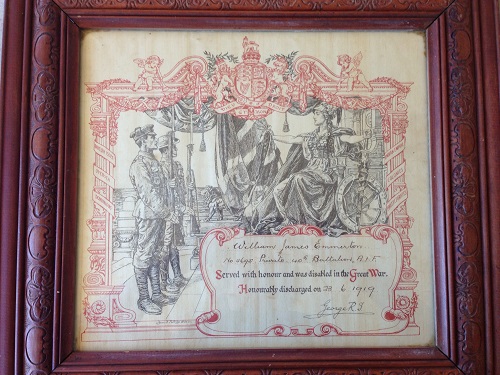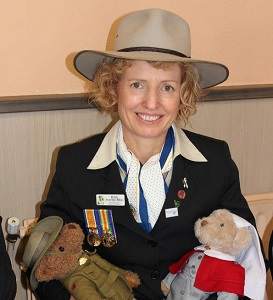
Communities, Sport and Recreation
-
Community Partnerships and Priorities
- Aboriginal Partnerships
- Child and Youth Wellbeing
-
Community Policy and Engagement
- Advisory groups
- Centenary of ANZAC
- Companion Card Program
- Concessions Guide
- Prevention of Family and Sexual Violence
- International Women's Day
- Frank MacDonald Memorial Prize
- Significant Tasmanian women
- Tasmanian Honour Roll of Women
- Women on Tasmanian boards and committees
- Veterans Programs
- Seniors Card
- Tasmanian Carer Action Plan
- Older Tasmanians
- LGBTIQA+ Tasmanians
- Volunteering
- Multicultural Tasmanians
- Food Relief to Food Resilience
- People with Disability
- Women
- Community and Disability Services
- Community Grants
- Contact
- Digital Strategy and Services
- Office of Local Government
- Office of Parliamentary Counsel
- Office of Review and Evaluation
- Office of the Secretary
- Resilience and Recovery Tasmania
- Corporate and Government Services
- Policy Division
- Service Tasmania Unit
- State Service Management Office
Contact Details
By phone
Find the number of a specific division or office to contact them directly or call Service Tasmania on 1300 135 513.
Our staff
Use the Tasmanian Government Directory to find staff contact details
Social media
Follow our social media accounts to keep up to date with specific programs and initiatives.
Private William James Emmerton

 Private William James Emmerton served with
the 40th Battalion, survived World War One and returned to Tasmania
where he met and married Edna Mason.
Private William James Emmerton served with
the 40th Battalion, survived World War One and returned to Tasmania
where he met and married Edna Mason.
Edna’s brother, Private George Mason, also served with the 40th Battalion at the same time as his future brother-in-law, but the family would never know if the two men knew each other. Private Mason died of wounds at the 2nd Anzac Casualty Main Dressing Station in the field in Belgium on 6 October 1917.
Like many servicemen, Private Emmerton spoke very little about the war. However, his granddaughter, Ruth Forrest MLC, the Member for Murchison (pictured), researched his war records before travelling to the Western Front with the Frank MacDonald Memorial Study Tour in 2013.
The Frank MacDonald Memorial Study Tour is an essay-based competition for year nine students that promotes the meaning of Anzac and Tasmania’s involvement in military history. Ruth accompanied the group as the representative of the Tasmanian Parliament.
Each member of the Frank MacDonald Memorial Study Tour researches a soldier and presents their research during the tour, often at the gravesite of the soldier. Ruth also researched:
- Private George Mason
- Private David Samuel Emmerton who served in the 26th Battalion
Private William Emmerton was Private David Samuel Emmerton's nephew, although they a few months apart in age. Private David Emmerton was the youngest of 16 children and Private William Emmerton was the first son of David's older (third of 16 children) brother. Private David Emmerton was killed in the Battle of Pozieres, in France, on 29 July 1916 and his body has not been recovered.
William Emmerton served in the Great War from 12 April 1916 to 18 November 1918. During his service William was wounded in action in France on 31 January 1917, embarked for England with septic abdominal wounds on 25 February 1917 and was admitted to Edmonton Military Hospital on 25 February 1917. He recovered and returned to France on 24 August 1917. He marched out to his unit joining the 40th Battalion from 69th Brigade on 1 September 1917.
Taken prisoner
William was noted as missing on 13 October 1917 and identified as a prisoner of war (POW) on 14 October 1917 at Limburg in a POW camp at Friedrichsfeld bei Wesel.
William was finally repatriated to England on 28 November 1918. He had lost approximately half his body weight in this time and while he didn’t speak much about the war to his family, he did say that he held no hatred for the Germans as the prison guards were generally kind, were also starving and shared what food they had. He said many of the younger men died, mostly from starvation and dysentery. He claimed he and the others who survived owed their lives to the Red Cross and the food parcels they finally received from them.
Return to Australia
William was admitted to Fulham Military Hospital on 28 November 1918 and finally embarked for Australia from Portland on 3 March 1919. William was honourably discharged on 23 June 1919 with the acknowledgement that he had served with honour and was disabled in the Great War.
William was awarded the British War medal and the Victory Medal on 26 April 1924.
William died in June 1958 at the age of 79 years at Riana, Tasmania.
Find out about other Frank MacDonald Memorial Study Tour soldiers research and pilgrimages.
